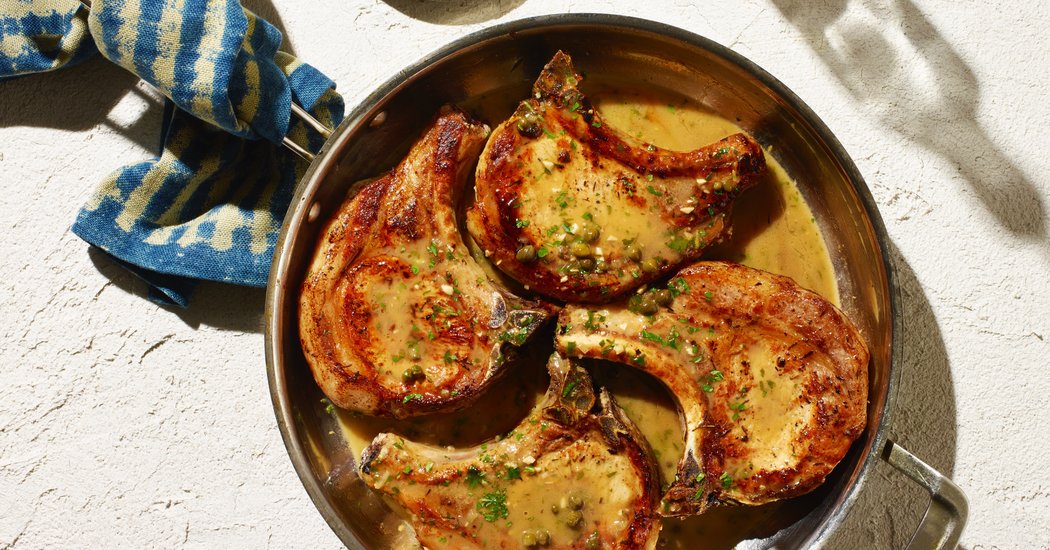
There are precious few feelings as nice as the one that comes from falling in love with a cookbook — with its aesthetics and point of view, with its larder and stories, above all with the flavors the recipes produce. There you were, making the sort of food you’ve been making forever, cooking the beans the way you do, the muffins, the fish, the lamb. Everything is fine, maybe even delicious. Life is good. But then, suddenly, it’s better: new techniques, new flavors, new narratives — everything so thrilling you want to make the recipes over and over again, until they are a little bit yours, until the food they produce is something you share with the author like a secret, like a fact.
That has been my experience with Toni Tipton-Martin’s “Jubilee: Recipes From Two Centuries of African-American Cooking,” which I got hold of this summer and have been cooking steadily from since, in advance of its publication on Nov. 5. An instructional companion to Tipton-Martin’s indispensable 2015 bibliography of black cooking in America, “The Jemima Code,” “Jubilee” shares the same hereditary material: the nearly 400 cookbooks by and for African-Americans that Tipton-Martin has collected and studied for more than a decade. As she does in “The Jemima Code,” Tipton-Martin uses those books to upend segregationist narratives about African-American cooking, showing how throughout the 19th and 20th centuries, black cooks were central to the development of American cuisine, taking influences from immigrant groups from coast to coast.
“Jubilee,” Tipton-Martin writes, sees and celebrates “cooking that can be traced to free people of color, the well-trained enslaved and skilled working class, entrepreneurs and the black privileged class.” It applauds a cuisine built on what she calls “a foundation of humble sustenance,” from “the luxurious hospitality embraced by the black bourgeoisie to the sturdy but refined cooking that supported community activism by women’s social clubs, sorority sisters, and civil rights leaders.”
And so here are delicate salmon croquettes from Beatrice Hightower Cates’s 1936 “Eliza’s Cook Book,” collected from the ladies of the Los Angeles Negro Culinary Art Club, modernized with the help of the North Carolina restaurateurs Stephanie L. Tyson and Vivian Joiner. Here is the recipe for mint juleps that Tom Bullock made for the members of the Pendennis Club in Louisville, Ky., and published in his 1917 book, “The Ideal Bartender,” the first such known recipe collection by an African-American. Mildred (Mama Dip) Council’s recipe for a layered garden salad with garlic-and-herb dressing makes an appearance, and so does the contemporary food writer Nicole Taylor’s recipe for coffee-scented short ribs braised in red wine, from her excellent “The Up South Cookbook.” As for Tipton-Martin’s recipe for braised celery, based partly on one S. Thomas Bivens published in “The Southern Cookbook” in 1912, the vegetables cooked down in fat and the sauce thickened at the end with beurre manié, as Bivins suggested? It is incredible and will be part of my Thanksgiving table this year.
Yes, there are recipes here for what’s commonly called “soul food,” for macaroni and cheese, for gumbos and corn breads too. But as Tipton-Martin told me in an interview, her book is not meant to be comprehensive. “We don’t have enough information yet to say what the canon of African-American cooking is,” she said. “That’s why this book isn’t 600 recipes long.” “Jubilee” was meant to hail something else entirely, she explained, something particular: the cooking of prosperous homes, of cooks at work and at play, “the kind of joyous cooking,” she wrote, “that would have turned yesterday’s enslaved and free cooks into today’s celebrity chefs with glittering reputations grounded in restaurant fare and cookbook publishing.”
I’ll tell you who would have been one of them: Nathaniel Burton, a busboy at the Hotel New Orleans who went on to be the chef at the Hotel Pontchartrain and Broussard’s in New Orleans and taught at the Culinary Institute of America before publishing, in 1978, “Creole Feast: Fifteen Master Chefs of New Orleans Reveal Their Secrets.” For “Jubilee,” Tipton-Martin revises a Burton recipe to present a dish of seared pork chops with a roux-thickened lemon-caper sauce, ingeniously taking a tip from the celebrity chef and restaurateur B. Smith to add lemon zest and juice to the sauce instead of vinegar, and finishing the whole thing off with hot sauce and a buttery emulsion.
It is an astonishingly good thing to cook and eat, especially with nutty white rice and perhaps that braised celery on the side. It is African-American French food that is also Italian, totally elegant and thus absolutely from New Orleans, and every time I make it, there is laughter at the table, absolute joy.
Recipe: Pork Chops in Lemon-Caper Sauce




